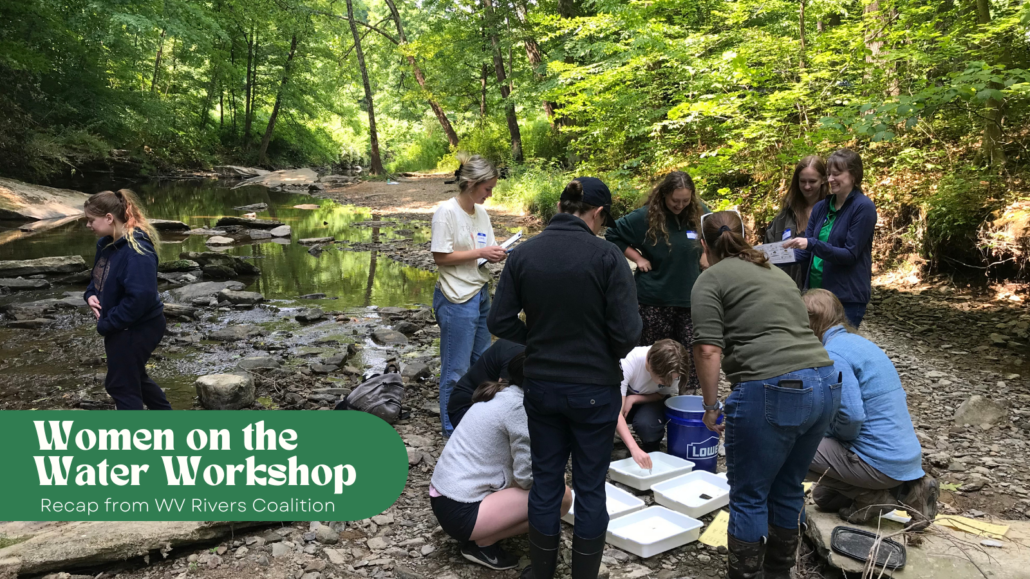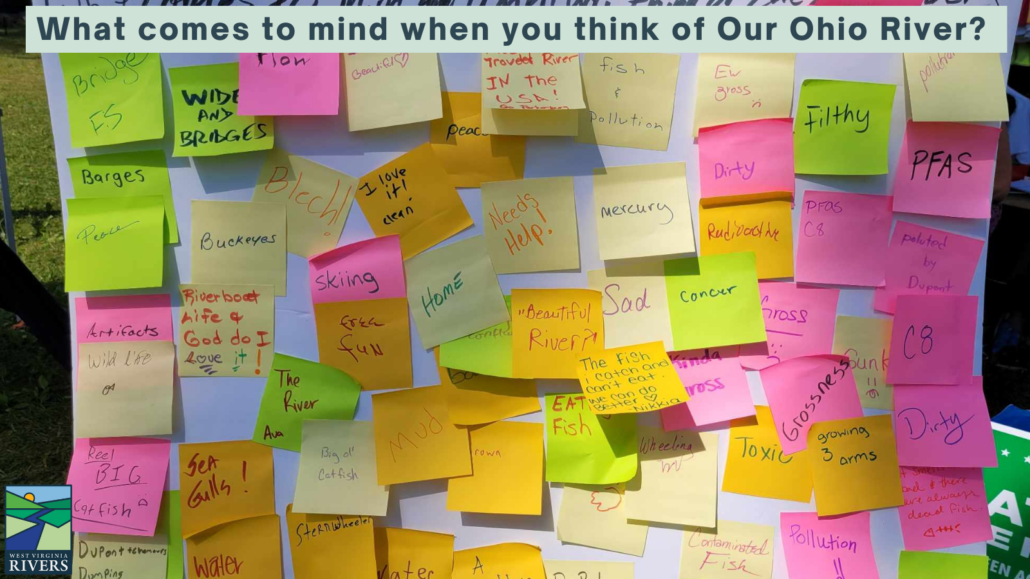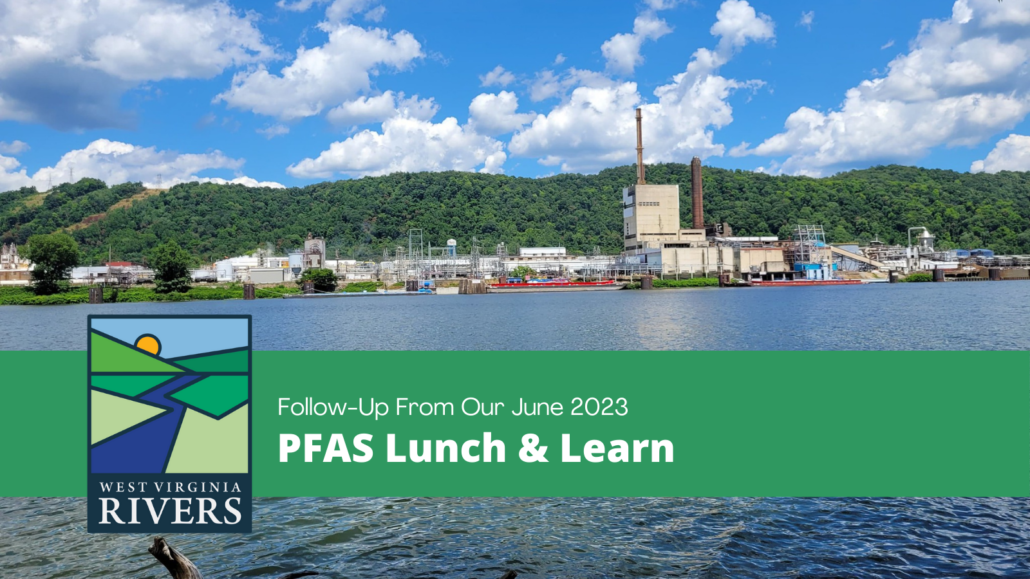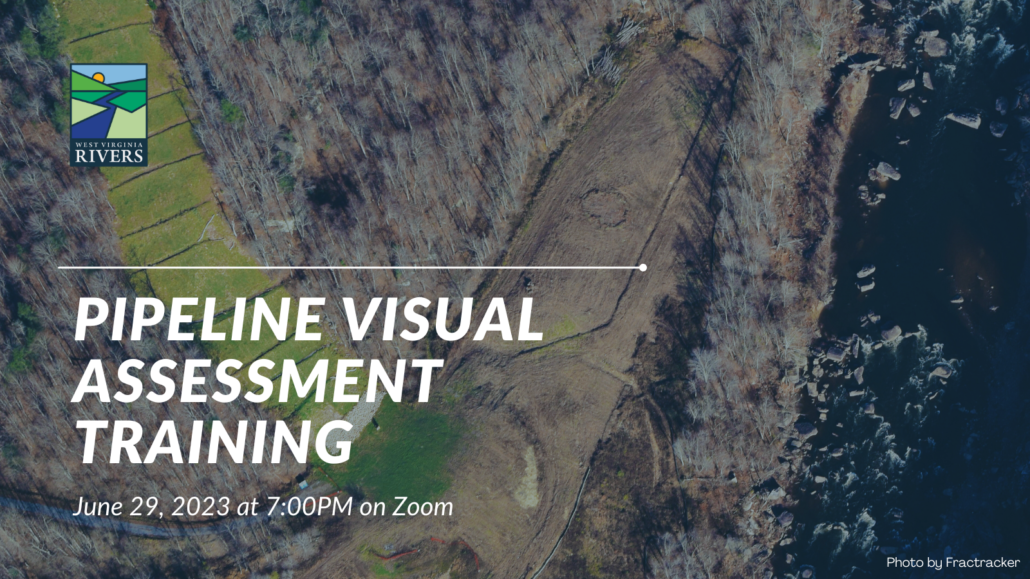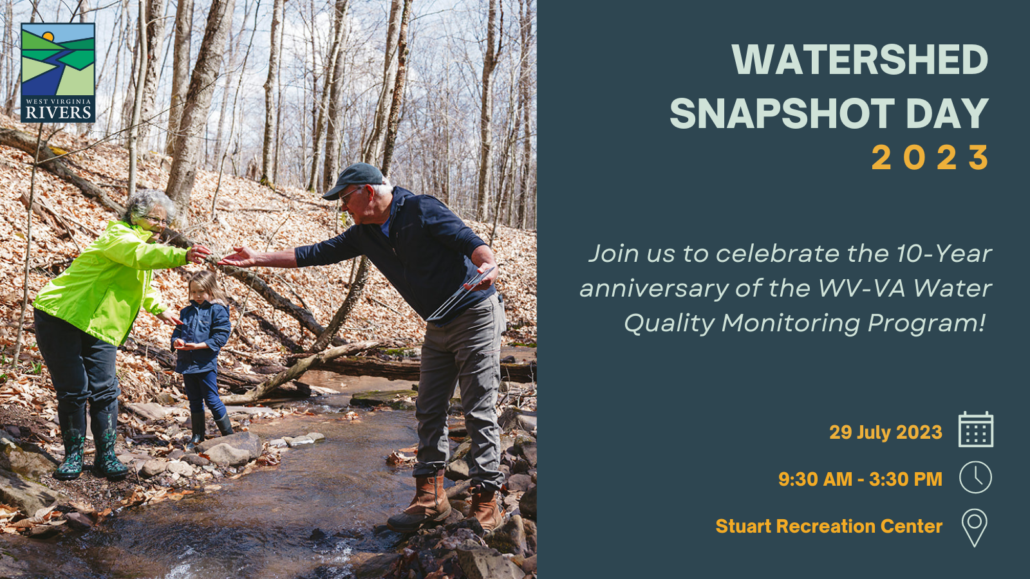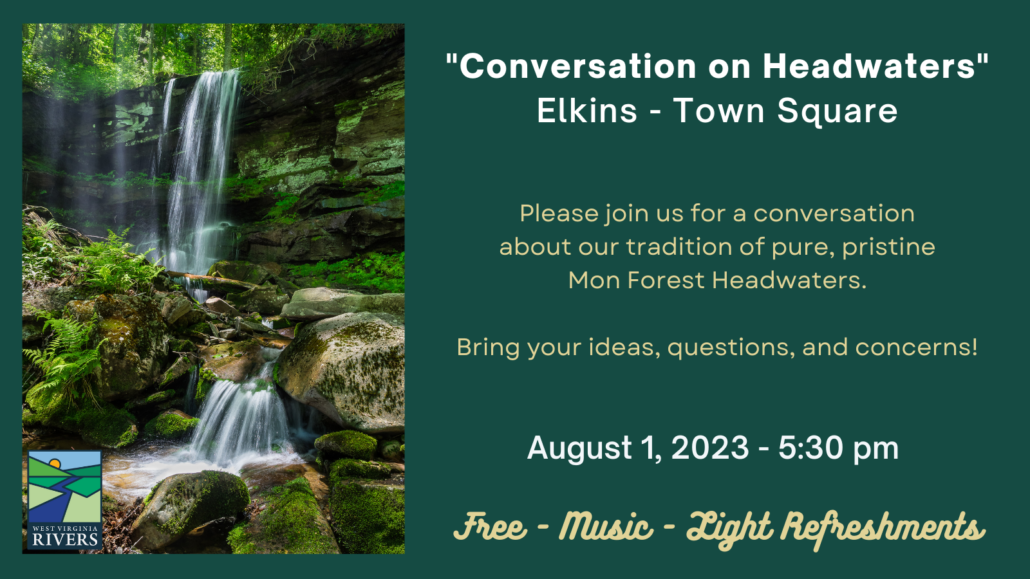Updates from WV Rivers Coalition – June 2023
Jenna Dodson, WV Rivers’ Staff Scientist, took a role in opening doors for young women with an interest in environmental science at the first Women on the Water Workshop.
Recognizing the underrepresentation of women in scientific fields, partners from WV Rivers Coalition, the WV Department of Environmental Protection, Civil & Environmental Consultants, Inc., and the Save The Tygart Watershed Association joined together at Fairmont State University to meet and mentor future environmental scientists.
Their collective goal was to guide and empower future women in science, ranging from grades 10 to 12 and university students, by introducing them to the remarkable women already making waves in the field.
Thanks to a NASA EMPOWER grant, this significant workshop provided hands-on water monitoring field experience, bridging the gap between theory and practice. Actively engaging the participants, Jenna and our partners inspired these aspiring scientists to pursue their dreams with unwavering determination.
Reflecting on her role in this impactful initiative, Jenna Dodson said, “I hope to continue this work by providing opportunities and support for young women with an interest in environmental science. By fostering an inclusive environment and showcasing the accomplishments of women in the field, we can empower the next generation to shape a sustainable future.”
In a world where only 33% of the authors of the Intergovernmental Panel on Climate Change (IPCC)’s sixth assessment report were women, the importance of visible role models cannot be overstated. Through initiatives like the Women on the Water Workshop, an inclusive atmosphere was cultivated and young minds were inspired to unlock their potential as environmental scientists.
With each drop of knowledge shared and every door opened, Jenna Dodson and our team are committed to creating a world where women’s voices are heard, celebrated, and valued in the pursuit of a healthier, more sustainable planet.
Great work, Jenna!
Earlier this month, our Ohio River Coordinator Heather and Communications Manager Maggie went to the Mid-Ohio Valley Multi-Cultural Festival.
We had a great time in the milder weather talking about protecting river and stream health, drinking water quality, wildlife habitats, and access to outdoor recreation.
During the festival, we asked community members to share what comes to mind when thinking of the Ohio River. Over the three day festival, more than 100 people stopped by our both to share their hope and concerns about the Ohio River.
Some said “dirty” or “gross,” while others wrote “cancer,” “PFAS,” and “a problem.” We also had people write “home,” “peace,” and “beautiful.” We talked to anglers of all ages who talked about how they can’t eat the fish they catch and how unfair that is.
While spanning six border states and 14 states within the watershed, the Ohio River connects us more than it divides us. Our communities are facing serious problems — from C8/PFAS contamination and increased flooding to struggling fish populations and expensive water bills. The good news is that many talented, passionate people are working together to create solutions.
- One solution is a federal Ohio River Restoration program. Despite other great water systems in the United States receiving millions — even sometimes hundreds of millions — of dollars each year for restoration work, right now the Ohio River receives none. We’re working across the region to change that! You can click here for more information about this effort.
- Another solution is supporting the work of WV’s PFAS Protection Act to help address this urgent and toxic problem. Here is a link to more information about WV’s “forever chemicals” problem with some suggestions for how to work together to solve it.
As WV Rivers continues to work to restore the Ohio River, we’re looking to engage with people who live and/or recreate along the Ohio. Please reach out to our Ohio River Coordinator at hsprouse@wvrivers.org and share your experience, priorities, and concerns.
On Thursday, June 21, 2023, our Clean Water Campaign Coordinator, Maria Russo, facilitated her first webinar with WV Rivers Coalition.
More than 80 people attended, asked questions, and engaged with us on PFAS contamination in water resources in communities across West Virginia. If you missed our live PFAS Lunch & Learn, you can catch up with the recording linked here.
Our featured speakers included:
- Jenna Dodson, Staff Scientist, West Virginia Rivers Coalition
- Dr. Alan Ducatman, Professor Emeritus, West Virginia University
- Delegate Evan Hansen, West Virginia House of Delegates and Principal at Downstream Strategies
- Scott Mandirola, Deputy Cabinet Secretary, West Virginia Department of Environmental Protection
You can also find the slides attached here. Be sure to check out the “Resources” (slide 9) at the end of WV River’s Staff Scientist Jenna Dodson’s segment, which includes the DHHR chart of finished water data and the map that Jenna spoke about during her presentation.
During the PFAS Lunch & Learn, WV Rivers asked two poll questions of participants.
In our first question, we asked, “Do you live in an area known to be contaminated by PFAS?”
- 39% of people said yes, 19% of people said no, and 42% did not know.
Then, we asked, “What is your most frequently used drinking water source?”
- 69% of people said municipal water, while 31% of people said wells.
As West Virginia Rivers continues to learn more about this issue and strategize for the work ahead, it is incredibly helpful for us to have that information. If you participated in the poll, thank you!
Additionally, if you have already participated in or watched the webinar, could you please take this brief survey, asking what you thought and how you hope to be involved with this work as we move forward?
Providing input on surveys like this one will help us continue to act as a resource for our communities, so thank you in advance for taking the time to share your thoughts.
The Fiscal Responsibility Act, passed by Congress and signed into law by the President, granted the approval of the Mountain Valley Pipeline (MVP). As a result, MVP is scheduled to restart construction as early as mid-July.
Our team at WV Rivers has been tirelessly working to protect our water, land, and communities throughout this process. Despite the approval, there are still over 500 waterways that remain to be crossed by the pipeline.
To hold MVP accountable, we need to increase our capacity to monitor construction and report pollution to ensure the environmental impacts are minimized.
That’s why WV River’s Program Director, Autumn Crowe, and our team are hosting a virtual Pipeline Visual Assessment Training this Thursday, June 29, 2023, at 07:00 PM.
During the session, we will focus on what to observe and monitor during the pipeline construction and how to report pollution incidents using the Stream Watch App effectively.
We need boots on the ground to protect our rivers and streams. Register now for the Pipeline Visual Assessment Training and be part of our effort to safeguard our waterways.
Save the Date: Join us for a Watershed Snapshot Day on July 29, 2023, from 9:30 am to 3:30 pm at Stuart Recreation Center in Elkins, WV. Volunteers from the WV-VA Water Quality Monitoring Program will gather in the Monongahela National Forest to capture a “snapshot” of the water quality in the headwaters.
Volunteers will work in teams, each receiving maps and instructions to help establish baseline conditions and track changes in water quality over time. Our goal is to conduct water quality monitoring for several sites along eight routes in the Monongahela National Forest.
At this event, we also want to show our volunteers, who have helped us watchdog our waters over the past 10 years, how much we appreciate and value their commitment to clean water. More details to come on this celebration and the schedule of events.
Our headwaters within The Monongahela (Mon) National Forest are vital. They serve as the source of clean drinking water in the Chesapeake and Ohio watersheds, provide habitat, and support outdoor recreation. Folks across our state have expressed the desire to make sure our headwaters remain pure and pristine.
The Forest Service manages 12 of these waterways as free-flowing waterways with one or more outstandingly remarkable value (scenic, recreational, historical, cultural, or scientific). We are asking: Is there a way to make these safeguards permanent? We want to hear your thoughts!
Join us on August 1, 2023, at 5:30 p.m. at Elkins Town Square (at the Depot) for live music, light refreshments, and an opportunity to learn more and ask questions.
If you are unable to join us – we still want your thoughts about providing permanent safeguards to our Mon Forest Headwaters. We invite you to fill out our simple 3-question survey or click on the button below.
This event is a follow-up to the virtual “Conversation on Headwaters.” If you missed the presentation, or want to review it, here are the recording and the slides presented. To find out even more about the importance of Mon Forest headwaters, we invite you to read our report on insights from Mon Forest recreation users and general information regarding headwaters.
P.S. Financial contributions, large or small, help sustain our operations and support our projects across the state. If you are in a position to give today, can we count on you to make a tax-deductible contribution of $25, $50, or any amount?

